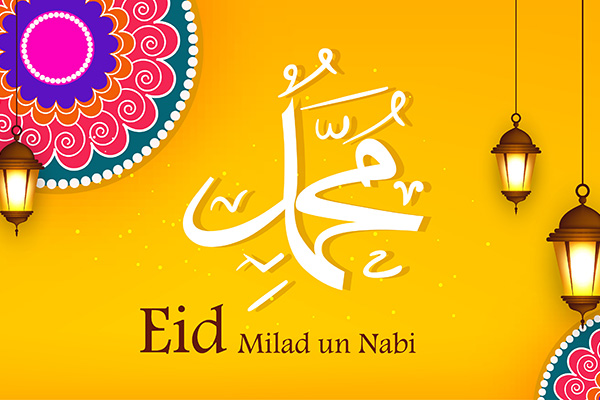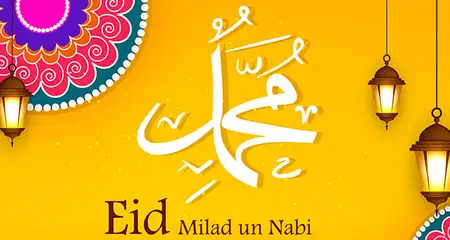EId Milad un Nabi, Mawlid, Milad un Nabi, or Mawlid al-Nabi al-Sharif, is a festival that is celebrated as the birthday of the revered Prophet Muhammad. According to numerous historical texts, Muhammad was born in 570 CE in Saudi Arabia. Shia scholars of the Muslim community observe this day on the 12th day of the third month of the Islamic calendar i.e., Rabi’ al-Awwal. Whereas, the Sunni scholars of society celebrate Muhammad’s birthday on the 17th day of the same month. In 2024, Milad-un-Nabi will begin on the evening of 15th September and end on the evening of 16th September in India (dates may vary depending on the positioning of the moon).
Eid Milad-un-Nabi/Id-e-Milad History & Significance
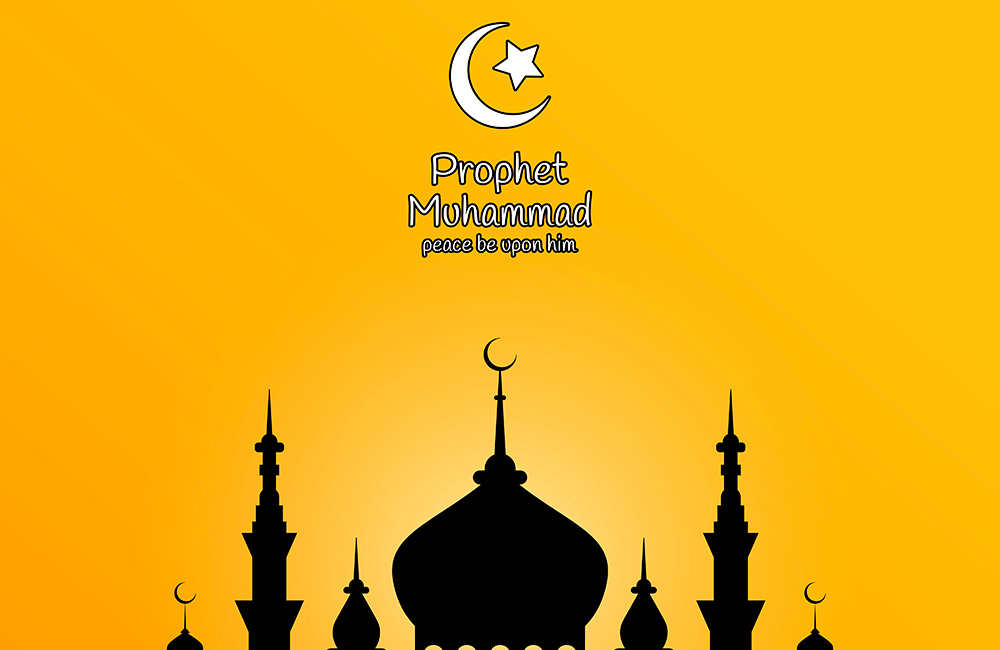
Milad-un-Nabi History & Significance
Initially, this date i.e., the 12th day of Rabi al-Awwal was observed as the day when Prophet Muhammad died and it wasn’t until the 13th century that the Muslim masses began celebrating EId-e-Milad as his birthday and since then this tradition is being carried on. It is believed by many scholars that Muhammad was born and died on the same day of the Islamic calendar. Although a major part of the Muslim community still considers this day inauspicious, countless Muslims throughout the globe celebrate it with utmost enthusiasm and spirit.
Earlier, Eid-e-Milad was celebrated in certain private sessions by only a few people. These people used to come together at the Mawlid house to celebrate the occasion. However, as time passed the visitors at the Mawlid house started increasing in numbers to mark and celebrate Muhammad’s birth anniversary. The festival then started to be observed on a bigger scale and became one of the major festivals celebrated by Muslims.
Eid Milad-un-Nabi/Id-e-Milad 2024 Celebrations across India
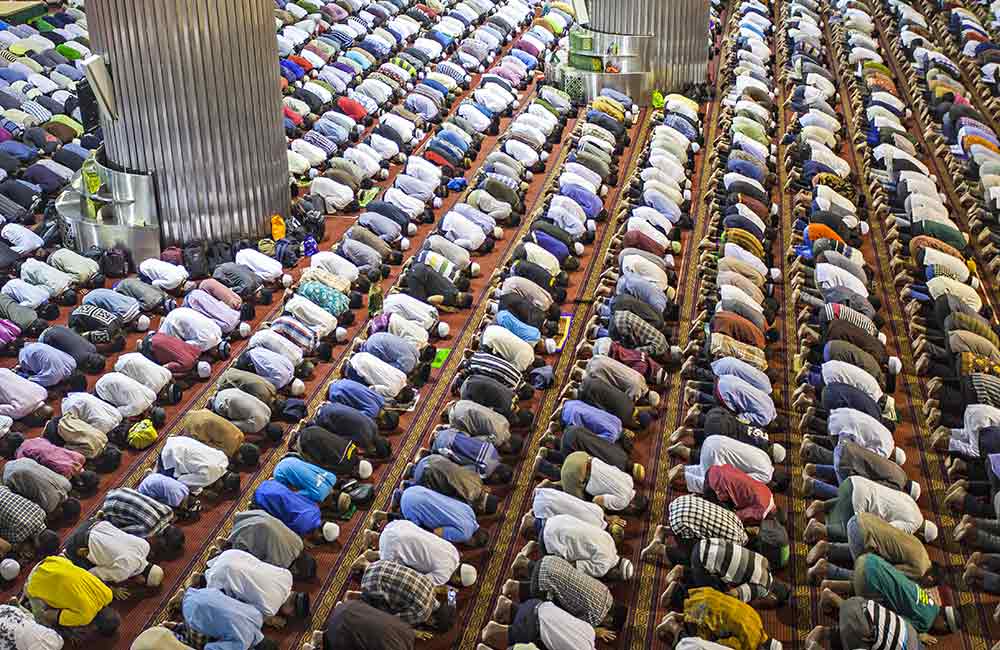
Milad-un-Nabi or Id-e-Milad | Celebrations across India
Milad-un-Nabi, the birthday of the Islamic Prophet Muhammad, is celebrated by holding mass prayers at the mosques where a preacher recites multiple sermons from the life and deeds of Muhammad. Families celebrate this day by preparing and distributing Seviyan (vermicelli in sweetened milk) and remembering the good deeds of Prophet Muhammad.
Places to Observe Milad un-Nabi/Id-e-Milad Celebrations across India
1. Asafi Mosque, Lucknow, Uttar Pradesh
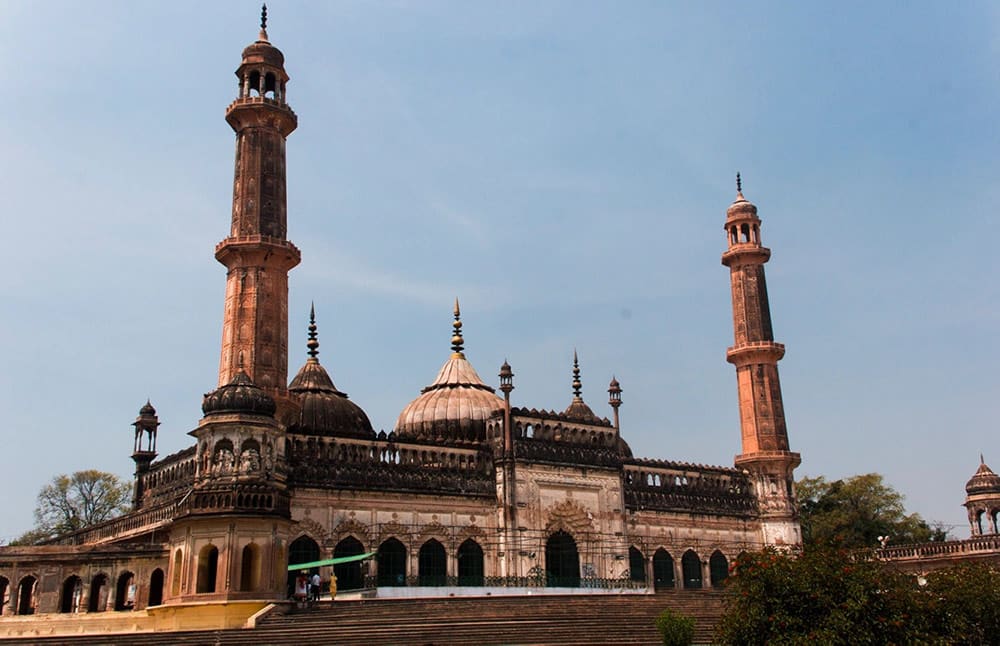
Asafi Mosque, Lucknow, Uttar Pradesh
In Uttar Pradesh, Eid Milad un Nabi is celebrated with great enthusiasm. People decorate mosques and homes with colourful lights and banners. Special processions and rallies are organised, where devotees come together to recite prayers, sing hymns, and read passages from the Quran, all in honour of the Prophet’s life and teachings. Additionally, sweets and other traditional dishes are prepared and distributed among friends, family, and the less fortunate as a symbol of charity and unity.
One of the most significant mosques in Uttar Pradesh, particularly in the city of Lucknow, is the Asafi Mosque, commonly known as Bara Imambara. It’s an iconic religious site and architectural marvel built by Nawab Asaf-ud-Daula in the 18th century. The Bara Imambara is an important venue for Milad un-Nabi celebrations, attracting a large number of devotees who gather to offer their prayers and participate in the festivities.
Nearby Places to Stay: Hotels in Agra, hotels in Lucknow, hotels in Kanpur, hotels in Ghaziabad, hotels in Gorakhpur,
2. Nakhoda Mosque, Kolkata, West Bengal
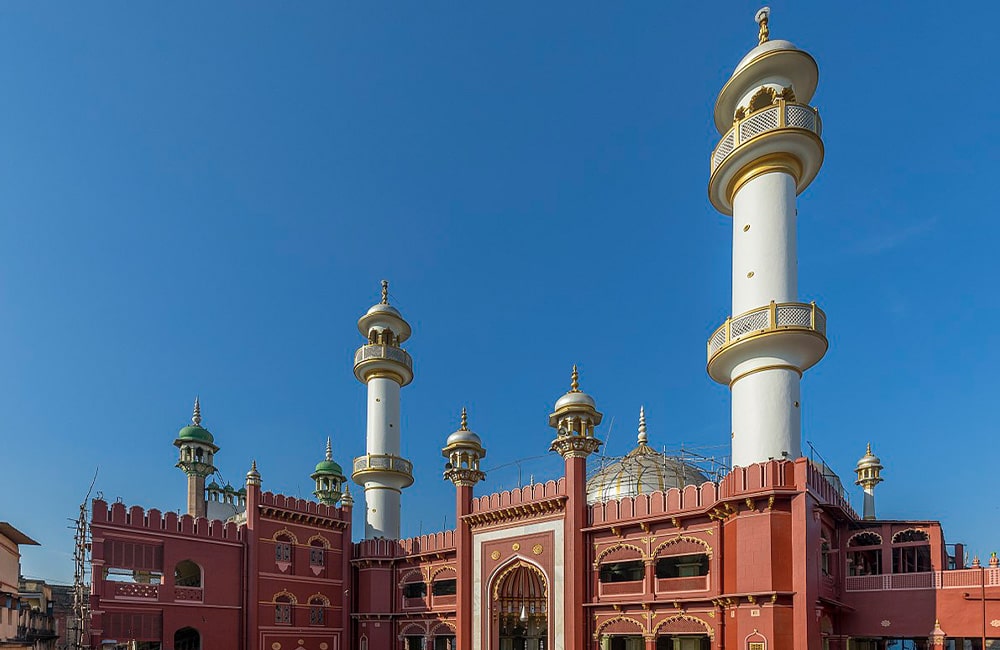
Nakhoda Mosque, Kolkata, West Bengal
In West Bengal, the festivities of Eid Milad un Nabi typically begin with special prayers and sermons at mosques and shrines. Devotees gather in large numbers to listen to religious scholars who narrate the life and teachings of the Prophet. People often decorate their homes and streets with colourful lights and flags to commemorate the occasion. Additionally, charity and acts of kindness are encouraged during Milad un-Nabi as a way to honour the Prophet’s message of compassion and generosity.
One of the important mosques in West Bengal where Milad un-Nabi is celebrated is the Nakhoda Mosque, located in the heart of Kolkata. Nakhoda Mosque is not only a significant religious site but also a historic landmark. During Milad un-Nabi, it becomes a focal point of the celebrations, drawing thousands of worshippers who come to offer prayers and participate in the festivities. The mosque’s design and intricate artwork create a stunning setting for the celebrations, making it a memorable and spiritually enriching experience for those who attend.
Places to Stay Nearby: Hotels in Kolkata, Hotels in Siliguri
3. Imarat Shariah Mosque, Patna, Bihar
In Bihar, like in many other parts of India and the Islamic world, Milad un-Nabi is celebrated with great enthusiasm and devotion. The celebrations typically begin with special prayers and sermons at mosques across the state. Believers gather in large numbers to listen to religious leaders who speak about the life and teachings of Prophet Muhammad, emphasizing his role as a symbol of peace, compassion, and unity.
One of the most important mosques in Bihar where Milad un-Nabi is celebrated is the Imarat Shariah mosque in Patna. This historic mosque not only serves as a place of worship but also plays a significant role in promoting religious harmony and understanding among the diverse communities in the region. During Milad un-Nabi, the mosque is beautifully decorated, and the atmosphere is filled with a sense of spirituality and unity as people come together to commemorate the birth of Prophet Muhammad and reflect on his teachings of peace and brotherhood. Additionally, processions, charity events, and communal feasts are common features of the celebrations in Bihar, strengthening the bonds of community and faith.
Places to Stay Nearby: Hotels in Patna
How do Shias and Sunnis Celebrate Id-e-Milad
Both Sunni and Shia Muslims celebrate this occasion, but there can be variations in how they observe it due to differences in religious practices and traditions.
Sunnis
- Recitation of Nasheeds: Sunni Muslims often celebrate Eid-e-Milad by reciting religious poems and nasheeds (Islamic songs) that praise the Prophet Muhammad.
- Mosque Decorations: Mosques and homes may be decorated with lights and green banners or flags, which are considered the colour of Islam.
- Charity and Acts of Kindness: Many Sunnis take the opportunity to engage in acts of charity, feeding the poor, and helping the less fortunate.
- Islamic Lectures: Special lectures and sermons about the life and teachings of Prophet Muhammad may be held in mosques or community centres.
- Food and Sweets: Families and communities often come together to share special meals and sweets, symbolizing the joyous occasion.
Shias
- Religious Gatherings: Shia Muslims typically hold gatherings at mosques or private homes where they recount the life and teachings of the Prophet Muhammad and his family, known as the Ahlul Bayt.
- Recitation of Eulogies: Eulogies (known as Marsiya or Noha) that highlight the suffering and martyrdom of the Ahlul Bayt, particularly Imam Hussein, are recited.
- Candle Processions: In some Shia communities, candle processions are held, where participants carry candles or torches.
- Charity and Acts of Kindness: Just like Sunni Muslims, Shia Muslims also engage in acts of charity and kindness on this occasion.
- Special Prayers: Special prayers, known as Salat al-Mawlid, are often recited.
It’s important to note that the way Eid-e-Milad is celebrated can vary greatly among Sunni and Shia communities, as well as within different regions and cultures. Additionally, some Muslims, regardless of their sect, choose not to celebrate Eid-e-Milad as a religious holiday, viewing it as a bid’ah (innovation) in Islam because the Prophet’s birthday is not mentioned in the Quran or Hadith.
Other Festivals in India with Holiday Type
| Festivals in India | Day | Date | Holiday Type |
|---|---|---|---|
| New Year’s Day | Mon | 01-Jan | Restricted Holiday |
| Lohri | Sat | 13-Jan | Restricted Holiday |
| Makar Sankranti | Sun | 14-Jan | Restricted Holiday |
| Pongal | Mon | 15-Jan | Restricted Holiday |
| Guru Gobind Singh Jayanti | Wed | 17-Jan | Restricted Holiday |
| Republic Day | Fri | 26-Jan | Gazetted Holiday |
| Losar | Sat | 10-Feb | Restricted Holiday |
| Basant Panchmi | Wed | 14-Feb | Restricted Holiday |
| Guru Ravidas Jayanti | Sat | 24-Feb | Gazetted Holiday |
| Maharshi Dayanand Saraswati Jayanti | Wed | 6-Mar | Restricted Holiday |
| Mahashivratri | Fri | 8-Mar | Gazetted Holiday |
| Holi | Mon | 25-March | Gazetted Holiday |
| Good Friday | Fri | 29-Mar | Gazetted Holiday |
| Easter Day | Sun | 31-Mar | Restricted Holiday |
| Gudi Padwa | Tue | 9-Apr | Restricted Holiday |
| Eid-ul-Fitr | Wed | 10-Apr | Gazetted Holiday |
| Vaisakhi (Vishu) | Sat | 13-Apr | Restricted Holiday |
| Rama Navami | Wed | 17-Apr | Gazetted Holiday |
| Mahavir Jayanti | Sun | 21-Apr | Gazetted Holiday |
| Rabindra Jayanti | Wed | 8-May | Restricted Holiday |
| Buddha Purnima (Vesak) | Thu | 23-May | Gazetted Holiday |
| Id-ul-Zuha (Bakrid) | Mon | 17-Jun | Restricted Holiday |
| Rath Yatra | Sun | 7-Jul | Gazetted Holiday |
| Muharram (Ashura) | Wed | 17-Jul | Gazetted Holiday |
| Independence Day | Thu | 15-Aug | Gazetted Holiday |
| Parsi New Year’s Day (Nauraz) | Thu | 15-Aug | Public Holiday |
| Raksha Bandhan (Rakhi) | Mon | 19-Aug | Restricted Holiday |
| Janmashtami | Mon | 26-Aug | Restricted Holiday |
| Ganesh Chaturthi | Sat | 7-Sep | Restricted Holiday |
| Onam | Sun | 15-Sep | Restricted Holiday |
| Milad-un-Nabi or Id-e- Milad | Mon | 16-Sep | Gazetted Holiday |
| Gandhi Jayanti | Wed | 02-Oct | Gazetted Holiday |
| Dussehra | Sat | 12-Oct | Gazetted Holiday |
| Valmiki Jayanti | Thu | 17-Oct | Restricted Holiday |
| Karva Chauth | Sun | 20-Oct | Gazetted Holiday |
| Dhanteras | Tue | 29-Oct | Restricted Holiday |
| Kali Puja | Thu | 31-Oct | Gazetted Holiday |
| Halloween Day | Thu | 31-Oct | No Holiday |
| Diwali | Fri | 1-Nov | Gazetted Holiday |
| Lakshmi Puja | Fri | 1-Nov | Gazetted Holiday |
| Karnataka Rajyotsava | Fri | 1-Nov | Gazetted Holiday |
| Kerala Piravi | Fri | 1-Nov | Gazetted Holiday |
| Govardhan Puja | Sat | 2-Nov | Gazetted Holiday |
| Bhai Dooj | Sun | 3-Nov | Gazetted Holiday |
| Chhath Puja | Thu | 7-Nov | Gazetted Holiday |
| Guru Nanak Jayanti | Fri | 15-Nov | Gazetted Holiday |
| Christmas | Wed | 25-Dec | Public Holiday |
FAQs
Q. What is Eid Milad un Nabi festival?
A. Eid-e-Milad, also known as Mawlid al-Nabi, is a Muslim holiday that celebrates the birth of the Prophet Muhammad. It is observed with prayers, recitations, and community gatherings.
Q. Is Id e Milad 2024 a government holiday?
A. Yes, Eid-e-Milad is a gazetted holiday in India which means banks, post offices and government offices are closed on this festival.
Q. How is Id Milad un Nabi celebrated?
A. Eid-e-Milad, also known as Mawlid al-Nabi, is celebrated by Muslims as the birthday of Prophet Muhammad with prayers, recitations of his life story, and acts of charity. Festive gatherings, processions, and special meals are common to celebrate the occasion.
Q. When did Milad start?
A. Milad is typically celebrated on the 12th day of Rabi’ al-awwal, the third month of the Islamic lunar calendar, marking the birth of the Prophet Muhammad. The exact date is different each year in the Gregorian calendar.
Q. Who celebrated Eid e Milad first?
A. The celebration of Milad, the birthday of the Islamic prophet Muhammad, was first initiated by the Fatimid Caliphate in the 10th century.
Q. Is Milad Sunni or Shia?
A. Milad, also known as Mawlid, is celebrated by both Sunni and Shia Muslims to celebrate the birth of the Prophet Muhammad, although the specific customs and practices may vary between the two sects.
Q. When was Miladi Nabi 2023?
A. Eid Milad un Nabi 2023 was celebrated on September 28, Thursday.


